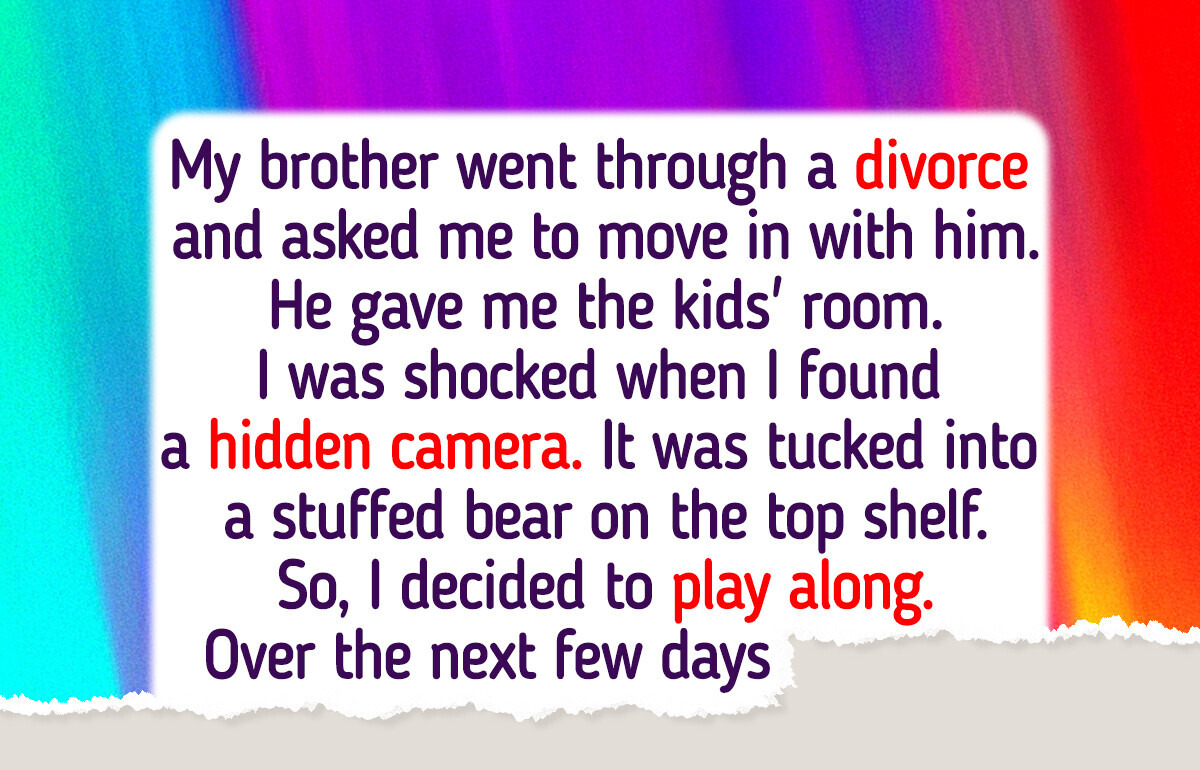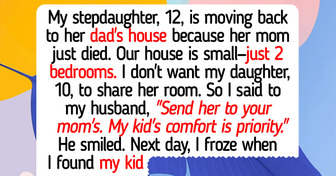15+ Moments When Life Served Up Surprises Big Enough for a Movie



Dear Bright Side,
My brother recently went through a divorce and asked me to move in with him. He said the house felt empty without his kids. My parents kept telling me to help him out, “just for a while.” He gave me the kids’ room.
I was shocked when I found a hidden camera. It was tucked into a stuffed bear on the top shelf. The belly of the bear had a tiny lens, and once I spotted it, everything clicked into place. The way he asked too-specific questions, how he seemed to know things I hadn’t told him.
At first, I doubted myself—maybe it was old, maybe it was for the kids—but when I checked the memory card, I saw myself, recorded just two nights before, pacing while on the phone and even crying alone in bed.
The sense of violation was immediate. I didn’t feel safe, not even in my sleep. I didn’t confront him about it, at least not immediately. I wanted to be smart about the situation. So, I decided to play along. Over the next few days, I gave him content.
I’d look directly at the bear and mutter things like, “I feel so guilty thinking of leaving... he needs me.” Then I’d pace the room like I was conflicted, sighing deeply. One night, I even staged a fake phone call with a friend, raving about how grateful I was to be there, how I was thinking of staying longer, because I “owed” him.
Then, two days before I left, I made sure he was home and left the bedroom door cracked open just a little. I brought in a second teddy bear, one from the thrift store, and set it right next to the first one.
Then I had another fake phone call. I said, “It’s funny how people will spy on you thinking they’re being clever. Too bad they’re using the same $30 camera I disabled three days ago.”
That night, I noticed the bear was gone. No word from my brother. The next morning, I left a note:
“Thanks for letting me stay. You’re right—the house is empty now. Good luck filling it with trust again.”
I moved out that afternoon. My parents were stunned. “But you said he was doing better?” they asked. “He needed you.”
“He’s got plenty of ways to keep an eye on things,” I said, and left it at that. He hasn’t spoken to me since.
Thank you for reaching out to us. We understand how difficult a situation like this can be, and we’ve put together a few tips that might be useful.

Before moving in with a family member—especially during a time of emotional upheaval—it’s crucial to have an honest conversation about expectations. Discuss how long the arrangement will last, what kind of help (if any) is expected from you, and what spaces or routines you need for your own comfort. Don’t assume everyone is on the same page.

Feeling uncomfortable for no obvious reason? That’s your intuition talking—and it’s usually worth listening to. Subtle things like strange questions, snooping behavior, or changes in someone’s demeanor can point to larger issues. You don’t have to immediately accuse someone or make a dramatic exit, but start paying attention.

If you discover something that feels like a violation—like a hidden camera, missing items, or eavesdropping—take photos or write down what you observed and when. You don’t need to confront the person right away, but having a record will help if you decide to take action or explain your decision to others later.

Leaving a tense family situation doesn’t make you selfish, it makes you self-aware. If the environment becomes toxic or emotionally unsafe, it’s okay to prioritize your mental health. You don’t owe a dramatic explanation to anyone, but if you do want to say something, it’s fine to keep it light or leave behind a clear boundary-setting message.
Trust is a fragile thing, especially when privacy is compromised. While family can be a source of comfort, setting and defending personal boundaries is key to emotional safety.











